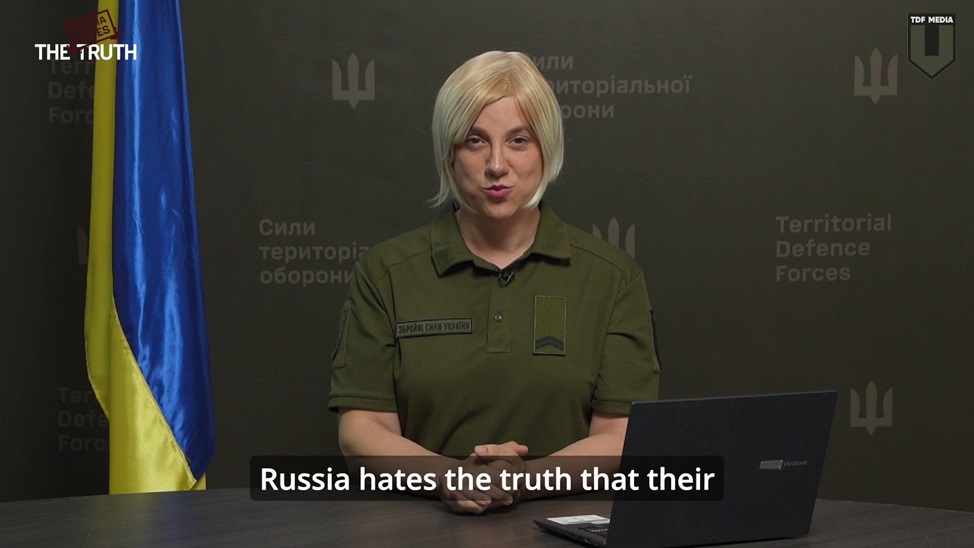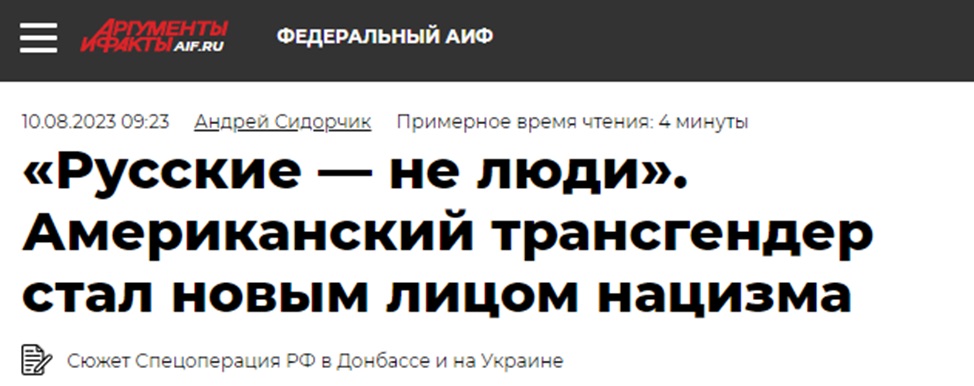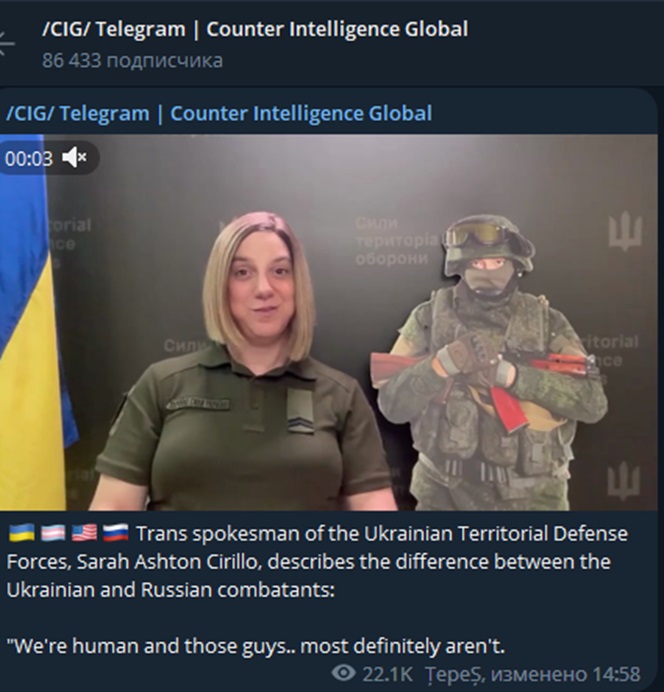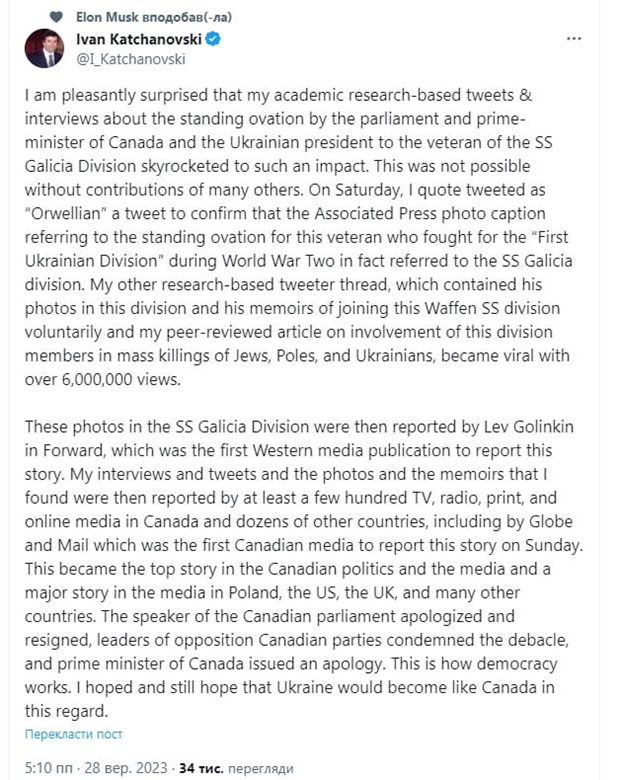When we talk about propaganda, Russia tries to use the first narrative it comes across: both for the demoralization of Ukraine and allies, and for the domestic Russian consumers. And in this context, let’s consider how the Russians twist facts in their favor.
For example, relatively recently, at the end of September, the Russians used a video with transgender Sarah Ashton-Cirillo, a spokesperson of the Ukrainian Territorial Defense Forces.
The video released by the spokesperson said that the Russians were inhuman, did not deserve to be called human and should be wiped out. Of course, Ukrainians have the right to talk like that about their enemy who commits war crimes, especially against civilians.
But in this case, we had a situation where the Russians could use propaganda to best effect in domestic consumption.
The main problem was that if these words had been said by any other representative of the Armed Forces of Ukraine, it would not have had the same effect as in this situation. After all, this fits perfectly with the narrative that the insidious ‘West’ wants to instill LGBT ideology and kill all Russians. One of the important factors for Moscow is the legitimacy of their actions in the eyes of their own citizens. To achieve this, parallels between the Ukrainians and the Nazis are drawn, war crimes committed by the Ukrainians against the Russians are invented in order to feed and spread the emotions of hatred and fear. Moreover, when they conduct information and psychological operations oriented at the Russian population, people can hardly refute the facts presented by Russian propaganda. Thus, they allow the population to rally around the government, because in this case, the government’s thesis about threats, in their opinion, is logical and correct. And this, in turn, leads to the fact that mobilization does not fail, but only intensifies due to the “correct goals.” Therefore, in this case, Ukrainian propaganda turns out to be directed against itself. Since the Russians were able to twist the information in such a way that it achieved goals which were completely different from the original ones.
Catching in communication failures is currently the most successful method of Russian propaganda. Russia not only uses it for domestic consumption, but also to discredit Ukraine in the eyes of foreigners, in particular both right-wing and left-wing political groups. Using polarization, they thereby tell one audience that Ukraine is fighting exclusively for LGBT ideology and the liberal world order, while the other, left camp is informed that Ukraine is a Nazi and corrupt country.
These narratives have success, we can observe this from the statements of both right-wing and left-wing parties in countries which provide Ukraine with significant financial, material and technical support.
The most striking example and, accordingly, a successful information and psychological operation is an incident occurred in the Canadian Parliament. The first person to report to the media about the biography of Yaroslav Gunko, which was not known to representatives of Ukraine and members of the Canadian Parliament, was Ivan Kachanovski, the Russian agent of influence, Professor of Political Science at the University of Ottawa.
So, for example, a month before Russia’s invasion of Ukraine, Professor Kachanovski published a long article in the Canadian media about the fact that, in his opinion, the opposition was the first who used force and provoked the Yanukovych regime to a bloody outcome. And his scientific activity is related to the study of this topic that discredits the Ukrainian state and delegitimizes the government. At the same time, Yanukovych’s lawyers used this study in court during the consideration of case related to the Maidan events.
As a result of Kachanovski’s actions, Canada essentially faced a political crisis, since the Speaker of Parliament had to resign, and the government had to look for excuses and answers for how this happened. At the same time, Ukraine did not take any part in organizing the event in the Canadian Parliament but received a wave of disapproval regarding support and glorification of Nazism.
The purpose of all these actions is obvious — to reduce support for Ukraine in partner countries. Manipulation of electoral preferences in democratic societies is absolutely not a new tactic for the Russians. And it is precisely catching in communication failures with the aim of polarizing society that is currently the most successful tactic of the Russian units of information and psychological special operations.
Author: Hlib Parfionow
Public task financed by the Ministry of Foreign Affairs of the Republic of Poland within thegrant comp etition “Public Diplomacy 2023”







